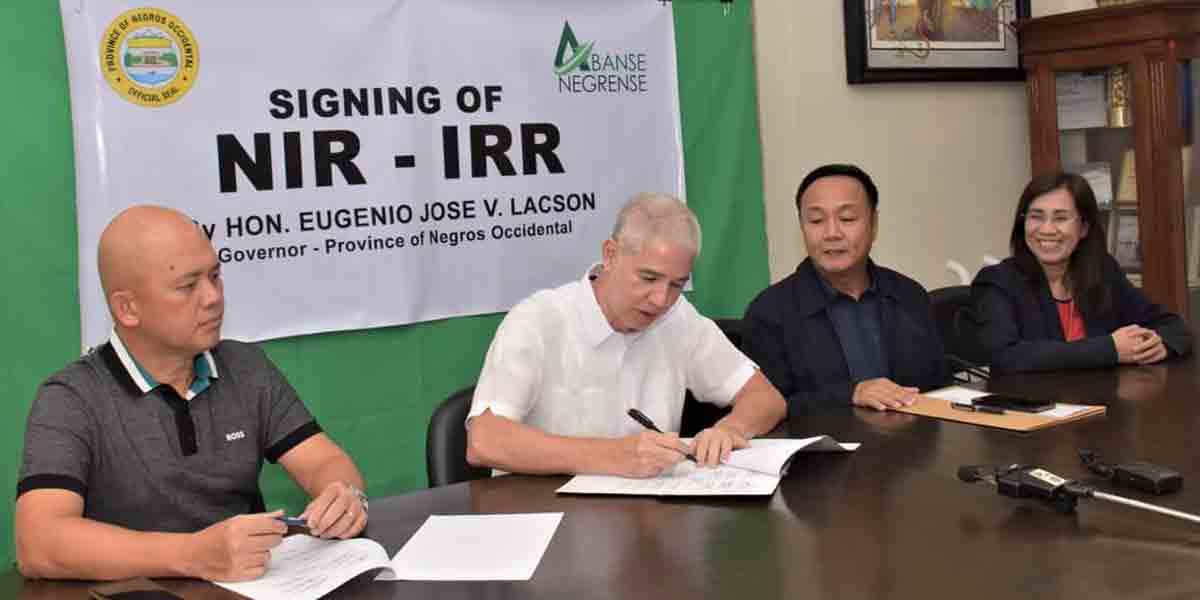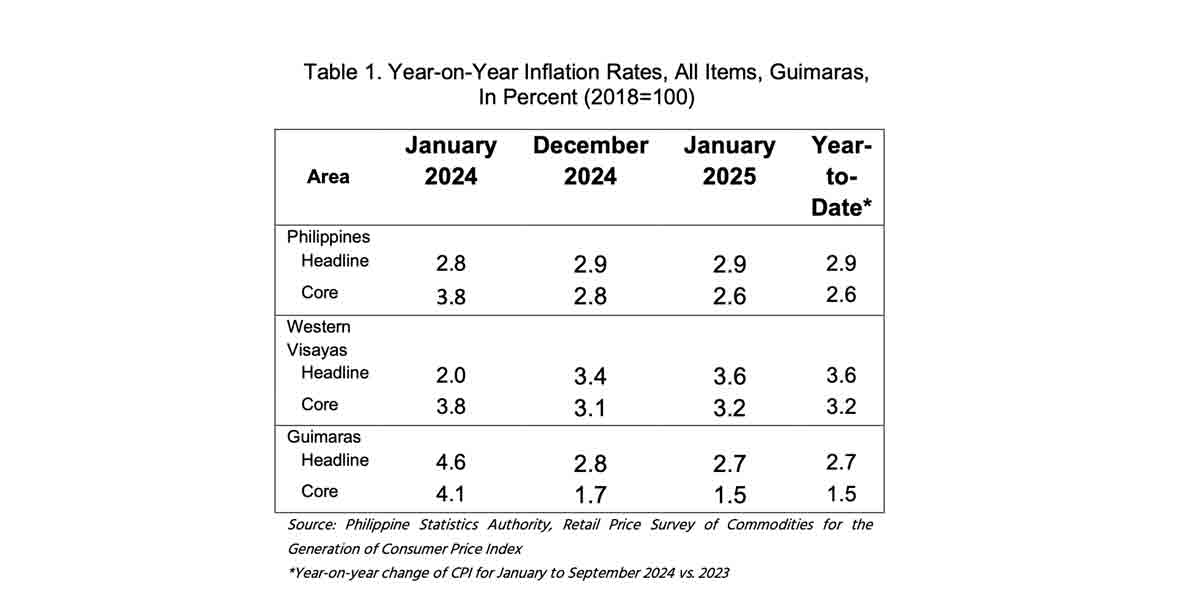
By Dolly Yasa
BACOLOD CITY – Negros Occidental Governor Eugenio Jose Lacson ssaid the Negros Island Region (NIR) is effectively functional following the signing of the Implementing Rules and Regulations (IRR) by most of the signatories.
Lacson signed the NIR-IRR on Wednesday afternoon at his office.
“Ideally, it would have been good if we all signed it together as originally planned, but we had to adjust our schedules. The Department of the Interior and Local Government (DILG) went around to get the IRR signed,” Lacson told reporters.
He added that the DILG has already set up its office for the NIR, signaling progress in the new region.
“That, in a way, tells us that it’s moving forward. After years of waiting, it has finally borne fruit,” he said.
Most of the Negros Island representatives and two of its governors have signed the IRR, including heads of three government agencies.
Earlier, Negros Occidental 6th District Rep. Mercedes Alvarez-Lansang did not sign the IRR after a provision she had pushed for, which had been approved by the Technical Working Group, was removed.
The Department of Budget and Management (DBM) omitted a provision in the NIR-IRR regarding the establishment of satellite offices for national government agencies.
This provision had initially been approved by the TWG, which consisted of NIR legislators and governors during a meeting at Camp Crame in Quezon City.
In the presence of Teodora Sumagaysay, DILG OIC regional director for NIR, and DILG Central Office Director Dennis Villaseñor, Lacson signed the IRR, witnessed by Provincial Administrator Atty. Rayfrando Diaz.
Others who signed the NIR-IRR include Negros Oriental Gov. Manuel L. Sagarbarria, Rep. Manuel T. Sagarbarria (2nd District, Negros Oriental), Rep. Jocelyn Limkaichong (1st District, Negros Oriental), Negros Occidental Reps. Gerardo Valmayor, Alfredo Marañon III, Juliet Marie Ferrer, Emilio Bernardino Yulo, and Bacolod Lone District Rep. Greg Gasataya, as well as DILG Secretary Benjamin Abalos Jr., Budget Secretary Amenah Pangandaman, and National Economic Development Authority Secretary Arsenio Balisacan.
Rep. Alvarez said she sent a letter to the DILG asking for the reinstatement of the removed provision but decided not to insist on it further to avoid delaying the operationalization of the NIR.
The governor noted that Rep. Alvarez’s concerns could still be addressed later.
“I think that’s one of the contentions from Siquijor as well. We can revisit that issue,” Lacson said.
Siquijor Gov. Jake Vincent Villa, Siquijor Lone District Rep. Zaldy Villa, Speaker Ferdinand Martin Romualdez, and Bacolod City Mayor Alfredo Abelardo Benitez have yet to sign the IRR.
Under the IRR of Republic Act 12000, regional offices of the Departments of Agriculture, Environment and Natural Resources, Agrarian Reform, Human Settlements and Urban Development, Justice, Defense, Budget and Management, Finance, Foreign Affairs, and Interior and Local Government, as well as the Philippine National Police and the Commissions on Elections and Audit, will be established in Negros Occidental.
Negros Oriental will host regional offices for the Departments of Education, Social Welfare and Development, Health, Labor and Employment, Public Works and Highways, Transportation, Energy, Information and Communications Technology, Trade and Industry, Tourism, Science and Technology, and TESDA, among others.
Regarding funding, the IRR states that the necessary amounts to implement the provisions of the NIR Act will be sourced from the current year’s appropriations of the concerned agencies, subject to the availability of funds and compliance with budgeting, accounting, and auditing laws.
Thereafter, the amounts needed for continued implementation of the NIR Act will be included in the annual General Appropriations Act, subject to the usual budget process.
All government agencies are required to submit their transition plans to the NIR Technical Working Group for inclusion in the formulation of the NIR roadmap within 90 days after the IRR takes effect.
Existing regional offices in Regions 6 and 7 have also been tasked with facilitating the initial operations of the NIR until the necessary regional offices are established.






















